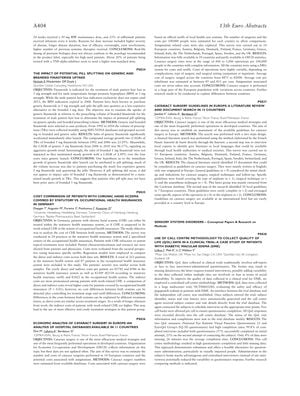Use of Call Center Methodology to Collect Quality of Life Data in a Clinical Trial: A Case Study of Patients with Diabetic Macular Edema
November 2010
in “
Value in Health
”

TLDR Using a call center to collect data in a trial for eye disease in diabetics led to high response rates and very little missing information.
The document discusses a study that aimed to improve the quality of Quality of Life (QoL) data collection in a clinical trial for Diabetic Macular Edema (DME) by using a centralized call center methodology. The trial, NCT00605280, evaluated the safety and efficacy of pegaptanib sodium in DME patients. An interface was established between the trial database and the call center, allowing for efficient scheduling and data collection. The call center agents used two QoL measures, the National Eye Institute Visual Function Questionnaire 25 and the EuroQol Group's EQ-5D questionnaire. The results showed high completion rates, with 99.8% of completed interviews including both questionnaires. The average completion time was 26 minutes, and only 4% of data were missing. The study concluded that the call center methodology resulted in high questionnaire completion rates and minimal missing data, demonstrating robustness and offering a feasible alternative for questionnaire administration, especially for visually impaired individuals. Further research comparing methods was suggested.